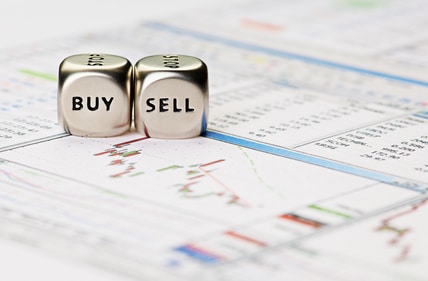In the forex market, a spread is the difference in pips between the BID price and the ASK price quote (buy/sell) in a currency pair such as the EUR/USD. A spread is also the easiest way for many brokers to get compensated for each transaction the customer makes through their trading platforms. This is the simplest way to understand what a spread is: EUR/USD is priced at 1.1500 the broker will offer it for 1.1501 to buy or sell at 1.1499.
The trading price for any currency pair is expressed by the combination of the symbols that make up the currency pair as well as the bid and ask price. It’s expressed as follows:
Base Currency/Currency trading | Bid Price/Ask Price
If at any point the quote for the euro against the US dollar is 1.1500 – 1.1502 it reads as follows:
EUR/USD = 1.1500/1.1502
The BID is the highest the trader is willing to buy, also known as purchase price or demand. It is the price at which the trader will enter the market when selling the currency pair. The Ask is the minimum price you are willing to sell, also known as selling price or supply. It is the price which the trader will enter the market when buying the currency pair.
The difference between BID and ASK is best known as the spread. The spread is expressed as pips or points. In this example, the spread in the EUR/USD is 2 pips or points.
Cost for each transaction
The spread is the cost of each transaction performed by the trader in the market (not including any other fees such as swap or commission). This cost can vary from broker to broker. There are brokers that use the market maker and ECN system which allows them to charge a very tight spread but charge commission for every transaction executed. The spread is the basic compensation for each broker and other third parties if applicable. These third parties are introducing brokers and/or money managers, who can also get compensated for their services through the spread.
How does the spread work?
Let’s follow this example: Trader X wants to open a buy position in EUR/USD at a price of 1.2001. Immediately, the broker executes the order and most likely executed the order at 1.1999, instantly making 1 pip on the execution. Now trader X wants to close the buying position and sell at 1.2010, but then the broker will most likely execute the order at 1.2011 to make another pip on the execution.
In the example above, the trader encounters a fee for every execution in order to trade the forex market, in order to obtain profits from every transaction. The expectation from each trade should be over the spread amount to capitalize on every trade. In each currency pair the cost of spread is different and also the trader should account for those variables in order to make more money than the actual spread cost.
Know your spread
It’s very important to know the spread in the forex market. The spread is the cost of each transaction that the broker charges and determines if that cost is appropriate for your trading style.
Secondly, all investors and traders should be educated about the lack of information regarding the possibility of manipulating the spreads on their trading platforms without the consent of their clients. On certain occasions there are unscrupulous brokers which exercise this practice to obtain more profits. Therefore it’s essential that the trader selects a quality broker with a good reputation and that is not guilty of any spread manipulation. It is also advisable to trade with a broker regulated by a regulatory body since their regulator requires companies to meet strict requirements regarding the financial products and services such as the safety of clients’ funds in segregated accounts.
Even if you work with brokers that do not engage in any tampering, let’s go back to the importance of the spread as it represents the cost to the trader. A trader that trades with low spreads will have less operating cost and long-term savings. Therefore, a high spread trader will have to generate higher profits to offset the cost. For many traders, the spread is very important within their losses and gains. For example, if a trader makes many short-term (scalper) trades a high spread can result in absorbing most of their profits. For a long-term trader (swing) in which each trade generates a certain amount of pips in profit, the spread is a matter of little relevance since it has little impact on the results of the trading.
How to select the best broker?
At the time of selecting the best forex broker, you must take into account several criteria including the spread. The spread is a cost factor for the trader and the more you trade the more you are hit with the cost. This applies specially to those scalper traders mentioned before. A low or institutional spread broker is the answer for any scalper in order to get the best fee out there.
STP brokers also offer a good spread base on their Liquidity providers although market maker brokers are always in your counterpart, they can often offer fixed spreads during certain trading hours which can be an advantage for certain traders.
Also, as mentioned in the previous section, another recommendation is to select a broker that has a good reputation without allegations or complaints of fraudulent dealings. If the broker is regulated, even better, since it brings a certain level of security to the client’s money through safety of funds in segregated bank accounts.
In summary:
-If you trade frequently on the forex market you should select a broker that charges the lowest spread
-Avoid brokers with a bad reputation especially in the manipulation of prices
-A regulated broker offers a higher level of security to the trader regarding the company’s practices.
















